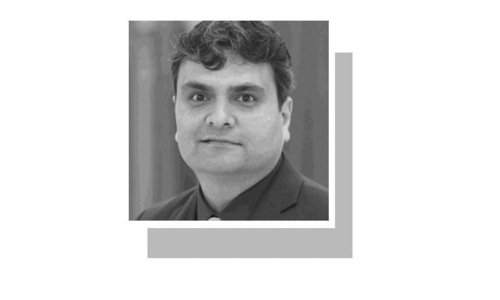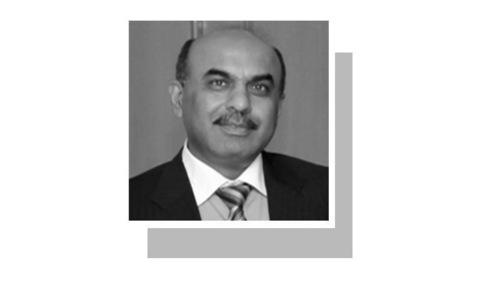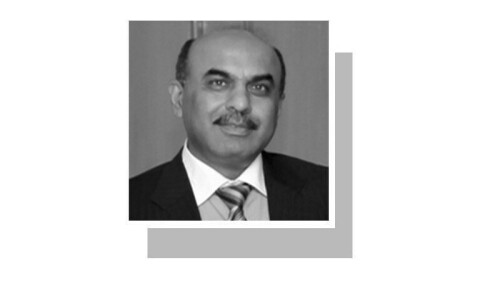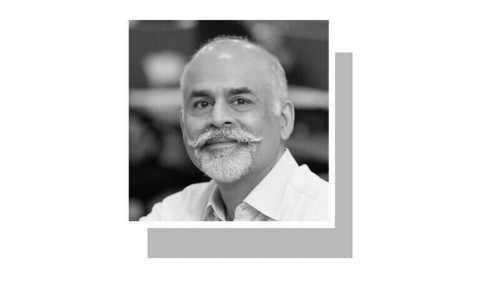ACCORDING to a recent UNDP report, almost 30 per cent of our total population is in the higher-education age bracket, aged 15-29, and this percentage will continue to rise. The pressure to deliver is intense with over 65 million young people ready to be trained for marketable jobs. Mismanagement is at its peak with funding roadblocks, lack of skilled teachers and limited resources hindering innovation and progress.
A radical new wave of disruption is needed for those who wish to learn from cutting-edge technology, those who wish to keep abreast of global developments and those who will eventually be the movers and shakers of our domestic socioeconomic systems.
What does this disruption mean for young people restricted by archaic policies? One of the biggest challenges faced by higher education in Pakistan is the gaping divide between skills and content. Students cannot be educated in a vacuum where the content neither addresses real-life challenges, nor enriches their experience. Students graduate in overwhelming numbers from our local colleges and spend years in underpaid jobs that don’t reflect their qualifications.
The fact is, their qualifications don’t make them market-ready, don’t teach them innovative skills for entrepreneurship and don’t develop their ability to learn on the job. Inequities in our education system are often cited as the culprit; however, even those who manage to go through higher education mostly end up walking away with a degree that symbolises little more than the stamp it carries.
A radical new wave of disruption is needed.
Without collaboration with international universities, this scenario may persist. With their enrichment programmes, strong linkages with the needs of industry, and growth mindset, international universities have much to offer us. There was a time when qualified faculty from well-reputed international universities were seen teaching, conducting research and working closely with local faculty and students. Gradually, the trend not only faded but collaborative efforts across borders — including student or faculty exchange programmes — became few and far between.
Higher education in any country is the mainstay of the economy. A focus on the state-of-the-art buildings that house our colleges and universities will show how skewed the priorities are. Beautiful buildings are seen teeming with life and hope, with young people chatting away. Attend a single class and it becomes obvious how that sense of life and hope gives way to inertia, with the same students staring at the teacher with blank faces, passively listening, distant and dazed.
One of the fundamental differences between school-going children and higher or adult learners is that the latter must be convinced of the need to learn, must see real-world meaning in it and must be able to translate it into something useful for their future. Keeping this in mind when preparing frameworks for policy may help alleviate some of the challenges faced by our higher education graduates. Working backwards from their students’ goals, recognising and supporting their vision of where they want to be in life may be a beneficial exercise for all higher education faculty.
Those who have dabbled in online education would know the possibilities are immense. The world is their oyster if students wish to build their skills independently and have learnt how to navigate the options available online. This also means many of our students will turn away from local universities as online degrees become more accessible and may, in fact, become digitally savvy much faster than if they were to opt for traditional higher education in Pakistan.
If higher education in Pakistan were to stay relevant, there is an urgent need to build teacher capacity and overhaul the curriculum to make it more reflective of skills for the future. Besides tech-fuelled learning, we would need to take concrete steps to equip students to present their research at conferences, panel discussions, benefit from mentoring programmes, and provide them with job placements and career counselling. Apparently, only 2pc of the 247 functional universities in Pakistan provide such opportunities.
The Labour Force Survey for 2020-21 reported that 37pc of our youth aged 15-29 are neither in education or training, nor in employment. Sadly, that is 21.8m young people who can be productively engaged in both work and education.
Clearly, there is no dearth of labour nor is the young population averse to learning or working. The fault lies in our inability to plan, execute and meet the urgent priorities of our economy, which includes developing skills among teachers and vocational trainers, without which there can be no hope of producing a workforce capable of building a nation.
The writer is senior manager, professional development at Oxford University Press, Pakistan.
neda.mulji@gmail.com
Twitter: @nedamulji
Published in Dawn, March 25th, 2023














































Dear visitor, the comments section is undergoing an overhaul and will return soon.